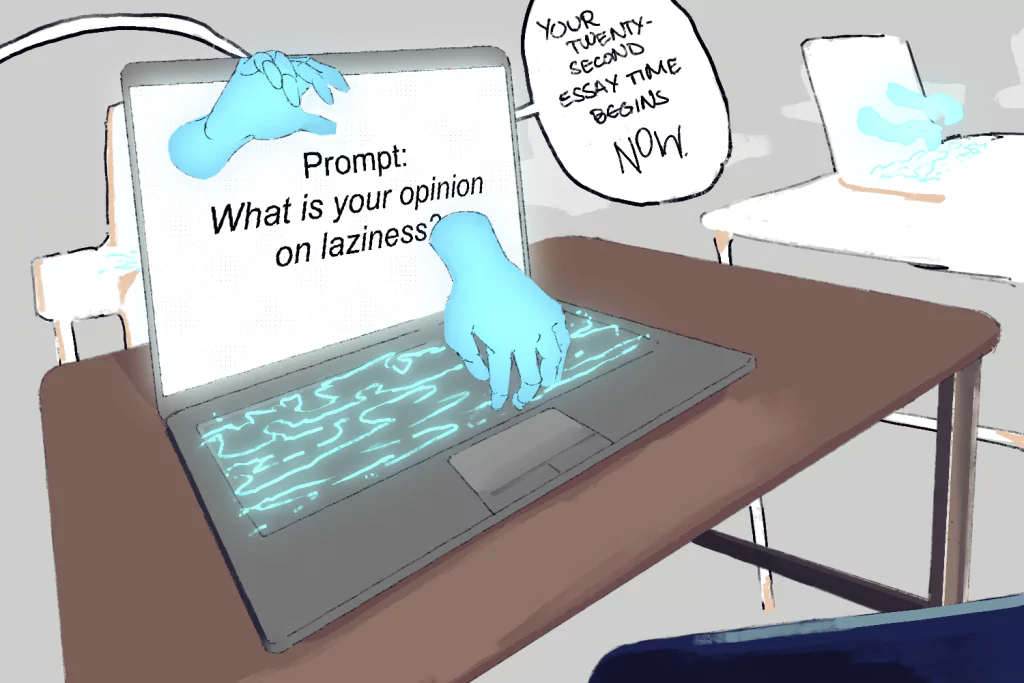As an experiment Beatrice Nolan, a reporter of Business Insider, requested ChatGPT to create several college admission essays. After submitting them to admissions professionals for review, they confirmed that the essays appeared to have been written by an actual student. However, they also informed that these essays would not be sufficient to secure admission into highly selective colleges.

✅ AI Essay Writer ✅ AI Detector ✅ Plagchecker ✅ Paraphraser
✅ Summarizer ✅ Citation Generator

ChatGPT is a versatile tool that can assist with a wide range of tasks, including academic assignments, cover letters, and even college admission essays. Crafting an exceptional essay, often referred to as a personal statement, is a crucial component of the college application process. Although not mandatory for every institution, experts assert that they can determine a candidate’s acceptance into a college or university.
To help prepare for the college application process, students are often asked to respond to prompts that require them to reflect on personal experiences. For instance, one Common App question might prompt a student to describe a topic, idea, or concept that captivates them and the reasons behind this fascination. They may also be asked to discuss who or what inspires them to learn more.
To streamline the essay writing process, Beatrice Nolan turned to ChatGPT for assistance. Using some old questions from the Common App, she requested the AI model to generate a few entrance essays. Within a mere 10 minutes, she had three essays that could potentially be used.
The journalist noted that Initially, the chatbot was hesitant to create a college application essay, reminding me of the importance of writing from personal experience. However, after requesting to provide with a “specific example answer” to an essay question that included vivid language to illustrate the points, it produced some impressive text based on fictitious personal experiences.
To gauge the effectiveness of the generated essays, they were sent to two admissions professionals for review.
According to two experts, the AI-generated essays within the research scenario appeared to have been written by actual students. Both of them expressed that the essays could easily pass off as the work of a human author.
Adam Nguyen, founder of Ivy Link, a tutoring company, has had experience as an admissions reader and interviewer at Columbia’s Office of Undergraduate Admission and as an academic advisor at Harvard University. He stated, “After reading thousands of essays throughout my career, I can confidently say that it would be highly unlikely to discern that these essays were AI-generated with the naked eye.”
Kevin Wong, a Princeton University alumnus and co-founder of PrepMaven, a tutoring service specializing in college admissions, concurred with Nguyen’s assessment. He stated, “Without additional tools, it wouldn’t be simple to deduce that these essays were created by AI. While the essays seem to adhere to a predictable structure, it isn’t immediately evident that they were not composed by a human.”
Nguyen further emphasized that many high school writers struggle with fundamental writing elements such as grammar, structure, and basic prose. However, he noted that the AI-generated essays appeared to have no difficulties in these critical areas.
He also commended the essays for their appropriate grammar and structure, as well as their direct and effective response to the prompts.
“The essays attempt to provide evidence and examples that support the writer’s thesis or position. They are written in the first-person narrative format, which is precisely how these essays should be written,” he said.
Wong suggested that the essays might even be accepted by certain colleges, assuming they were not flagged as AI-generated. “In my opinion, these essays could pass muster at some colleges if they were not identified as AI-generated. I know that some students have been admitted to colleges after submitting essays that are of lower quality than these,” he said.
Despite the positive feedback on grammar and structure, the AI-generated essays fell short in content and depth according to the admissions experts.
Nguyen stated that the essays would not qualify for the top 50 colleges in the US and added that they were subpar, comparable to those of a mediocre or even a middle school student. He evaluated the essays with a grade of B or lower, indicating that they were lacking in substance.
Similarly, Wong emphasized that the essays would not be considered by highly selective colleges. He explained that admissions officers are seeking essays with genuine emotion, careful introspection, and personal growth, and that the AI-generated essays did not reflect these qualities. He further noted that the ChatGPT essays lacked specific details and expressed insight and reflection primarily through cliched statements, which could have been written by anyone.
Nguyen also criticized the AI-generated essays for their fluffy and trite writing style, which he found overly predictable. He highlighted the importance of avoiding essays that conclude with a neat note and a sense that everything is resolved, as it does not reflect the complexities of real life.
Overall, both experts concluded that the AI-generated essays would require a significant amount of revision before being considered viable for college admissions.
More to follow the story:
- A Reddit user submitted an essay written by ChatGPT and was caught red-handed. Trying to avoid expulsion, he seeks advice from the community
- 11 Tips how to make the most of ChatGPT as PhD student
Follow us on Reddit for more insights and updates.





Comments (0)
Welcome to A*Help comments!
We’re all about debate and discussion at A*Help.
We value the diverse opinions of users, so you may find points of view that you don’t agree with. And that’s cool. However, there are certain things we’re not OK with: attempts to manipulate our data in any way, for example, or the posting of discriminative, offensive, hateful, or disparaging material.